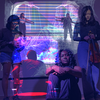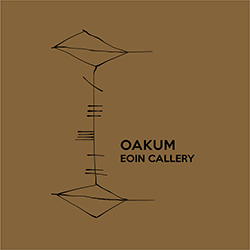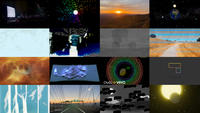Center for Computer Research in Music and Acoustics
Upcoming Events
Nat Condit-Schultz on Tempo, Tactus, Rhythm, Flow: Computational Hip Hop Musicology in Theory and Practice

Concepts and Control: Understanding Creativity in Deep Music Generation

Abstract: Recently, generative AI has achieved impressive results in music generation. Yet, the challenge remains: how can these models be meaningfully applied in real-world music creation, for both professional and amateur musicians? We argue that what’s missing is an interpretable generative architecture—one that captures music concepts and their relations, which can be so finely nuanced that they defy straightforward description. In this talk, I will explore various approaches to creating such an architecture, demonstrating how it enhances control and interaction in music generation.
Juhan Nam, "My Journey Toward Musically Intelligent Machines"

Creating intelligent machines that can listen to, play, and even making music has been a longstanding human ambition. Recent advancements in AI, especially through deep learning, have brought us closer to realizing this vision. In this talk, I will share my personal journey in developing musically intelligent machines, beginning with my PhD research on music representation learning during the early days of deep learning, and continuing with my collaborative work with students over the past decade at KAIST. Key topics will include bridging music audio with language, human-AI music ensemble performances, and neural audio processing.
Bio
Tristan Peng's Piano Recital

Tristan Peng's Piano Recital
Recital Program
- Prokofiev Piano Sonata No. 3, Op. 28
- Bach Toccata in E Minor, BWV 914
- Chopin Nocturnes Op. 48
- Ravel Miroirs
Foreign/Domestic

FREE and Open to the Public | In Person + Livestream
Recent Events
Prof. Dan Bowling - Music for Mental Health

I'm happy to welcome a new faculty member, Dr. Dan Bowling, to Stanford and the Hearing Seminar. He'll be talking about his research on music and health at the next Hearing Seminar. Please join us.
Who: Dr. Dan Bowling, Stanford Psychiatry's Division of Interdisciplinary Brain Sciences
What: Music and Health: Biological Foundations and Applications
When: Friday October 11th at 10:30AM
Where: CCRMA Seminar Room, Top Floor of the Knoll at Stanford
Jin Woo Lee on "Differentiable Physical Modeling for Sound Synthesis: From Design to Inverse Problems"

Abstract:
Audiovisual Performance | Final Projects | Arts Intensive 2024

In the span of 2.5 weeks, students in this audiovisual performance class worked intensely on several projects. They explored relationships between sound and moving image, programming and physical interaction with audio and video material, remixing audiovisual compositions, and performing with their digital doppelgängers. We are very excited to present their final projects in this live audiovisual concert.
Purnima Kamath on Generative Models for Sound Design

Past Live Streamed Events
Recent News
LISTEN: 1,200 Years of Earth’s Climate, Transformed into Sound

Science podcast featuring work by our fearless leader, Chris Chafe:
"When you sonify data, you experience time in a way you can’t when you look at a chart." Hal Gordon, Graduate student
Oakum - Eoin Callery
Released from behind the mixing console CCRMA's Concert Coordinator Eoin Callery has been set free to make an old-timey CD for Bay Area Label Eh? Records. Enjoy some amplified violin bow, guitar, and lots of Supercollider controlled feedback, all available on a small shiny disc and in a new fangled digital Bandcamp form.

Jonathan Berger Première
"Classical musicians face enormous expectations when they play a standard repertory work. Listeners have strong feelings about favorite pieces, even when they are open to fresh interpretive approaches.
The stakes are even higher with a premiere. Performing a new piece becomes an act of advocacy to pull an audience in.
Mystery of 101-year-old master pianist who has dementia
From the article: At first glance, she was elderly and delicate – a woman in her 90s with a declining memory. But then she sat down at the piano to play. “Everybody in the room was totally startled,” says Eleanor Selfridge-Field, who researches music and symbols at Stanford University. “She looked so frail. Once she sat down at the piano, she just wasn’t frail at all. She was full of verve.” Read more here...


